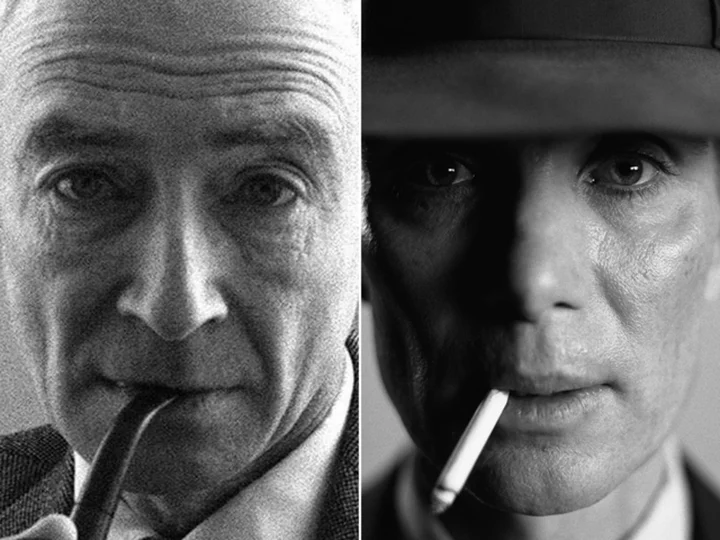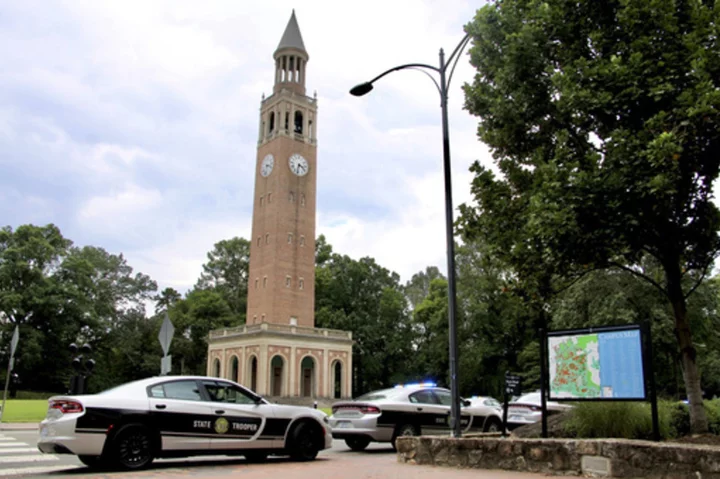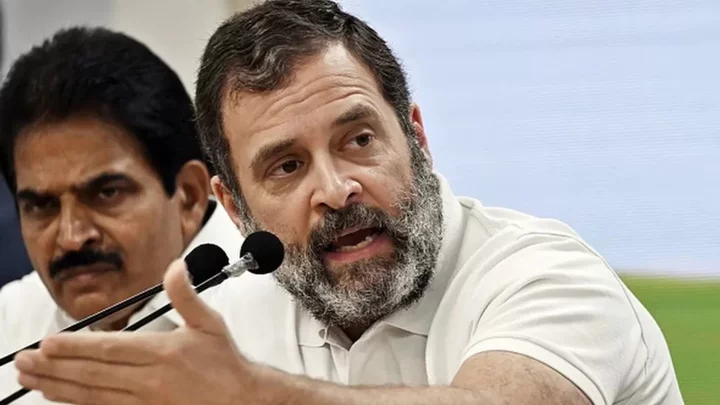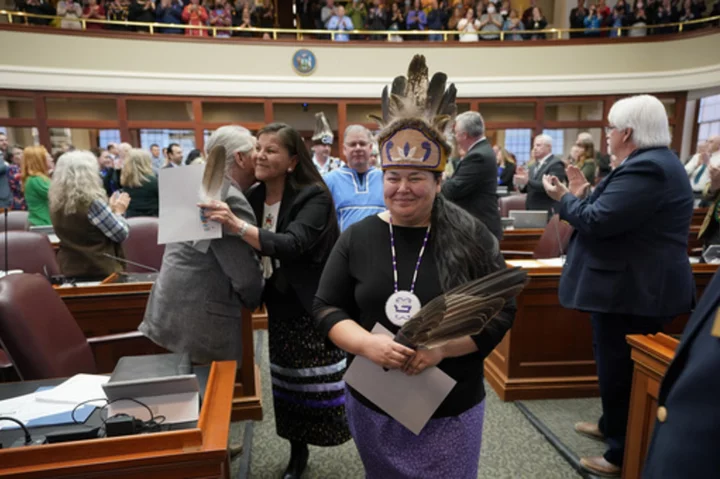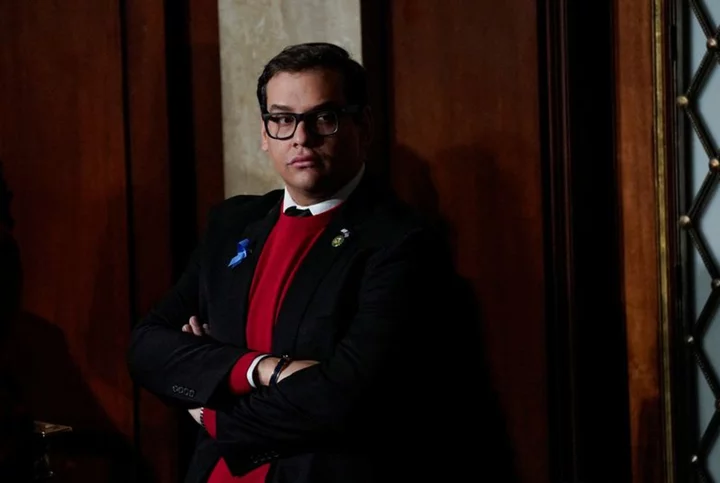When the highly anticipated movie "Oppenheimer" finally lands in theaters Friday, it will be one of the first blockbuster biopics to open since the end of the Covid-19 pandemic.
Director Christopher Nolan's latest creation concerns an earlier existential threat, telling the story of the atomic bomb through the lens of its creator, J. Robert Oppenheimer -- played by "Peaky Blinders" star Cillian Murphy.
The movie, which features a starry supporting cast including Matt Damon, Emily Blunt, Florence Pugh and Robert Downey Jr., is based on Kai Bird and Martin J. Sherwin's Pulitzer Prize-winning biography "American Prometheus: The Triumph and Tragedy of J. Robert Oppenheimer."
Who was J. Robert Oppenheimer?
Oppenheimer is widely considered the father of the atomic bomb. Born on April 22, 1904 in New York, he was the son of a German textile importer. He quickly rose to prominence as an internationally renowned physicist, employed by the US government to create an atomic bomb to quell the threat of Nazi Germany.
But his career was marred by controversy as he struggled to deal with the implications of creating the world's first nuclear explosion.
Oppenheimer told interviewers two decades later that when the Trinity test bomb exploded on July 16, 1945 at a remote site in the New Mexico desert, "We knew the world would not be the same. A few people laughed, a few people cried, most people were silent." He said he remembered a line from the Hindu scripture the Bhagavad Gita: "Now, I am become Death, the destroyer of worlds."
Oppenheimer believed the creation of an atomic bomb was necessary to bring about the end of World War II. But he was haunted by the knowledge that by creating the bomb he was also enabling the destruction of the world.
This moral conflict ultimately led to his disgrace, when he opposed the creation of the hydrogen bomb on moral and political grounds, and was accused of slowing down the development of the hydrogen bomb.
The United States Atomic Energy Commission (AEC) said in 1954: "If Dr. Oppenheimer had enthusiastically supported the thermonuclear program either before or after the determination of national policy, the H-bomb project would have been pursued with considerably more vigor, thus increasing the possibility of earlier success in this field."
What was the Manhattan Project?
The rise of Adolf Hitler in Germany led physicists like Albert Einstein, Leo Szilard and Eugene Wigner to warn the US government of the danger posed to humanity if the Nazis managed to make a nuclear bomb first.
In response, the US government assembled a crack team of atomic physicists -- headed by Oppenheimer, who had gained an international reputation for his research into subatomic particles.
In what became known as the Manhattan Project, Oppenheimer and his team moved their research to the remote location of Los Alamos, New Mexico, and in July 1945, the world's first nuclear explosion took place.
Less than a month later, on August 6 and 9, 1945, the US military dropped atomic bombs on Hiroshima and Nagasaki, killing 110,000 instantly and tens of thousands more within the year. In October of the same year, Oppenheimer resigned his post.
What did Oppenheimer do next?
In 1947, Oppenheimer became head of the Institute for Advanced Study in Princeton, New Jersey. From 1947 until 1952 he also served as chairman of the General Advisory Committee of the Atomic Energy Commission, which in October 1949 opposed development of the hydrogen bomb.
In the post-WWII era, as the world entered the Cold War, Oppenheimer was suspected by US intelligence of having ties with communists. This tied in with a wider determination to clamp down on supposed communist infiltration in various areas of the US government.
Oppenheimer faced accusations of disloyalty due to his opposition to the creation of the hydrogen bomb, as well as his friendship in the 1930s with communist students supporting the anti-Fascist cause in the Spanish Civil War. As a result, in 1954, he lost his security clearance and his position as adviser to the US government.
Meanwhile, the persistent threat of all-out nuclear war dominated international politics.
Oppenheimer spent the rest of his years increasingly concerned with the conflict between morality and scientific advancement.
He retired from the Institute for Advanced Study in 1966 and died the following year at the age of 62.
Last year, the US Department of Energy formally vacated the AEC's revocation of Oppenheimer's security clearance, calling the 1954 process "flawed." Energy Secretary Jennifer Granholm said in a December statement: "As time has passed, more evidence has come to light of the bias and unfairness of the process that Dr. Oppenheimer was subjected to while the evidence of his loyalty and love of country have only been further affirmed."

